16 July
1517 – Birth of Frances Grey (née Brandon), Duchess of Suffolk, at Hatfield. She was born on St Francis's Day and was the eldest daughter of Charles Brandon, Duke of Suffolk, and Mary Tudor, widow of Louis XII and sister of Henry VIII. Click here to read all about her.
1546 - Protestant martyrs Anne Askew, John Lascelles, John Adams and Nicholas Belenian were burned at the stake at Smithfield in London for heresy. Click here to read more about Anne.
1556 – Burnings of Julins Palmer, John Gwyn, and Thomas Robyns [some sources say Askew or Askin] in the old sandpits in Enborne Road, Newbury, after they were found guilty of sedition and heresy. They are known as the Newbury Martyrs.
1557 – Death of Anne of Cleves, fourth wife of Henry VIII, at Chelsea Old Manor after a few months of illness. On the same day, her body was embalmed and placed in a coffin covered with a cloth bearing her arms. Tapers were lit around her coffin and prayers said on a daily basis. She was buried in Westminster Abbey on 4th August.
1574 – Death of John Hart, scholar, phonetician and Chester Herald, in London.
1600 – Death of George Cranmer, scholar, administrator and nephew of Thomas Cranmer, the late Archbishop of Canterbury, in a skirmish with Irish rebels at Carlingford. He was in Ireland serving Charles Blount, Lord Mountjoy, as Secretary during a military campaign.
17 July
1497 – Death of Sir James Ormond (Butler), administrator and illegitimate son of John Butler, 6th Earl of Ormond, in a duel with Sir Piers Butler, near Kilkenny. The Butlers of Ormond were related to Thomas Boleyn, Queen Anne Boleyn's father.
1537 – Burning of Janet Douglas, Lady Glamis, on the castle hill at Edinburgh after being found guilty of two counts of treason. She had been charged with plotting the King's death (by poison) and assisting and corresponding with her brothers, Sir George Douglas and Archibald Douglas, 6th Earl of Angus.
1555 - Protestant martyrs Christopher Wade (Waid) of Dartford, linen-weaver, and Margaret Polley of Tunbridge, were burned for heresy. Click here to read more.
1555 – Birth of Richard Carew, antiquary, bee-keeper, translator and poet, at Antony House, Torpoint, Cornwall. Carew was the eldest son of Thomas Carew and his wife Elizabeth (née Edgcumbe). Carew was a member of the Elizabethan Society of Antiquaries, and his works included his “Survey of Cornwall”, a county history.
1565 – Death of Sir Thomas Dacre of Lanercost, illegitimate son of Thomas Dacre, 2nd Baron Dacre. He died while holding the office of Sheriff of Cumberland.
1601 – Death of Richard Latewar, poet, theologian, Vice-President of St John's College, Oxford, and chaplain to Charles Blount, 8th Baron Mountjoy. He died from a gunshot wound sustained in a skirmish at Bennurb, in Ireland, while on a campaign there with Mountjoy. Latewar was buried at Armagh Cathedral, and a monument was erected to him in the chapel of St John's in Oxford.
18 July
1509 – Edmund Dudley, administrator, President of the King's Council (Henry VII) and speaker of the House of Commons, was convicted of treason after being blamed for the oppression of Henry VII's reign. He was charged with conspiring to “hold, guide and govern the King and his Council” and ordering his men to assemble in London during the final days of Henry VII's life. Dudley was executed on 17th August 1510.
1530 – Death of William Bonde, author and Bridgettine monk, at Syon Abbey. Bonde wrote two religious works, “The Pylgrimage of Perfection” (1526) and “The Directory of Conscience” (1527). He was buried at Syon Abbey and bequeathed twenty-nine works to the Abbey's library.
1536 – Burial of Desiderius Erasmus in Basel Cathedral.
1553 – While John Dudley, Duke of Northumberland, and his forces made their way from Cambridge to Bury St Edmunds to stand against Mary's men, the Earls of Pembroke and Arundel called a council meeting and betrayed Northumberland and Queen Jane. They persuaded many council members that Mary's claim to the throne was legitimate.
1565 – Death of Katherine Ashley (née Champernowne), also known as Astley, in London. Kat was Chief Gentlewoman of the Privy Chamber during the reign of Elizabeth I, and had served as Elizabeth's governess during the latter's teenage years.
19 July
1543 – Death of Mary Stafford (née Boleyn), other married name Carey. It is not known where she was buried and there is also controversy regarding her date of death.
1545 - Henry VIII’s flagship, the Mary Rose, sank right in front of his eyes in the Battle of the Solent between the English and French fleets. It is not known for sure why the Mary Rose sank. All we know for certain is that the English fleet moved out to attack the French fleet in the late afternoon of the 19th as “a fitful wit sprang up” and that something went wrong as the ship carried out a turning manoeuvre. The Mary Rose sank and along with her the majority of her crew, including Sir George Carew, the Captain.
1551 – Marriage treaty between King Edward VI and Elizabeth, daughter of Henry II, King of France.
1553 - Mary, daughter of Henry VIII, was proclaimed queen in place of Queen Jane. Click here to read more.
1584 – Death of three year-old Robert Dudley, Baron Denbigh, son of Robert Dudley, Earl of Leicester, and his wife, Lettice, at Wanstead. He was laid to rest in the Beauchamp Chapel of St Mary's Church, Warwick, and his tomb pays tribute to “the noble imp”.
1596 – Death of Sir Francis Knollys, courtier, politician, privy councillor and Treasurer of the Household in Elizabeth I's reign. He was buried at Rotherfield Greys, Oxfordshire. Knollys was married to Catherine Carey, daughter of William Carey and Mary Boleyn.
20 July
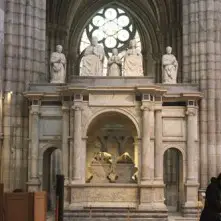
Tomb of Francis I and Claude of France
1524 – Death of Queen Claude of France, consort of Francis I, at the age of just twenty-four. She died at Blois and was temporarily laid to rest in the chapel there, but then moved to the royal abbey of St Denis just outside Paris in 1527. Brantôme declared that Claude’s husband, Francis I, gave her “a disease that shortened her days”, meaning syphilis, but it is not known for certain what she died of. See The Basilica of Saint-Denis Video for information on her resting place.
1547 – Death of Beatus Rhenanus (or Beatus Bild), humanist, classical scholar and friend of Erasmus, in Strasbourg. His works included a biograpy of priest and preacher Johann Geiler von Kaisersberg, a nine volume work on Erasmus, the Rerum Germanicarum Libri III and his editions of the work of Roman historian Velleius.
1554 – Philip of Spain arrived in England, at Southampton, in readiness for his marriage to Mary I.
1554 - John Knox, a leader of the Protestant Reformation in Scotland, published “A Faithful Admonition to the Professors of God's Truth in England”. Click here to find out more about this.
21 July
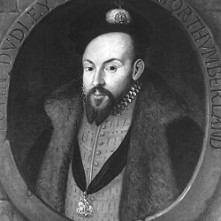
John Dudley, Duke of Northumberland
1545 - French forces landed at Whitecliff Bay and Bonchurch on the Isle of Wight. The French were not successful in taking the island, being defeated by the local militia.
1553 – Arrest of John Dudley, Duke of Northumberland for his part in placing his daughter-in-law, Lady Jane Grey, on the throne.
1586 – Explorer Thomas Cavendish set sail from Plymouth on his South Sea voyage.
1601 – Burial of Peregrine Bertie, 13th Baron Willoughby of Willoughby, Beck and Eresby, at Spilsby Church. Bertie was the son of Katherine Willoughby (married names Brandon and Bertie), Duchess of Suffolk, who married his father, Richard Bertie, as her second husband.
22 July
The Feast of St Mary Magdalene - click here to read more.
1437/8 – Birth of John Scrope, 5th Baron Scrope of Bolton, soldier and a Councillor of Richard III. He was imprisoned after supporting pretender Lambert Simnel in 1487, but was pardoned in 1488.
1536 - Henry VIII's illegitimate son, Henry Fitzroy, Duke of Richmond and Somerset, died at St James's Palace. Click here to read more about him.
1549 – Robert Kett and protesters stormed Norwich and took the city, during Kett's Rebellion.
1576 – Baptism of playwright and pamphleteer, Edward Sharpham, at Colehanger, East Allington, in Devon. He is thought to have written the plays “The Fleire” and “Cupid's Whirligig”.
1581 – Death of Richard Cox, Bishop of Ely, at Downham in Cambridgeshire. He was buried in Ely Cathedral.


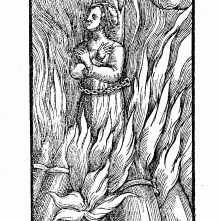


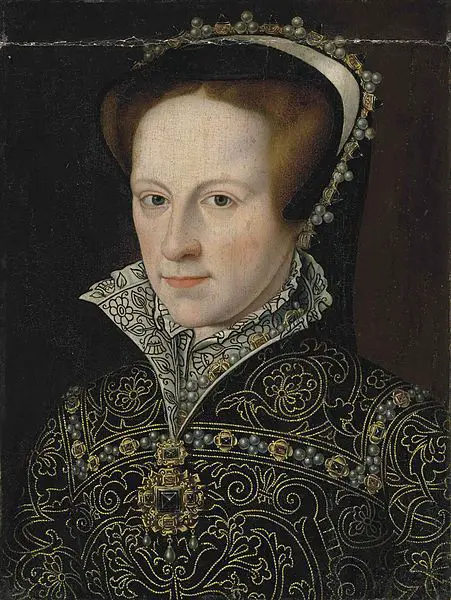
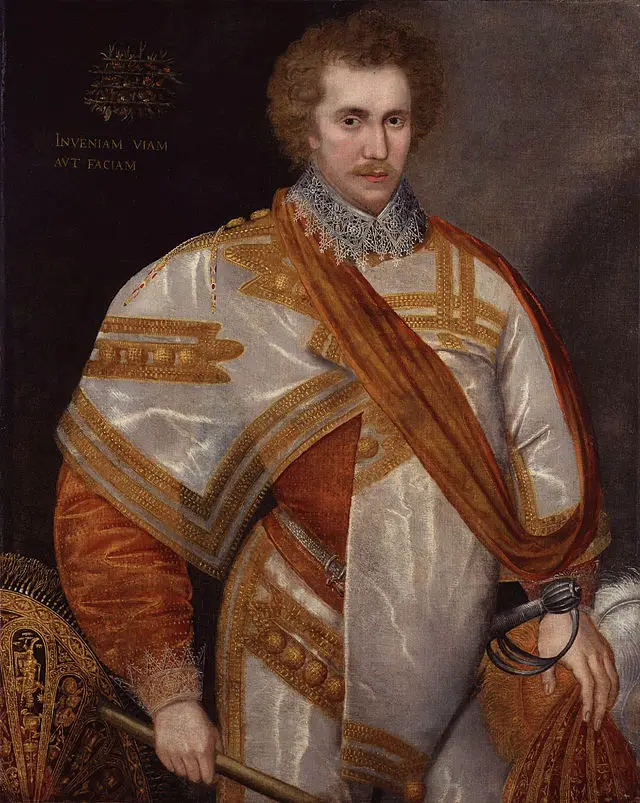
Leave a Reply